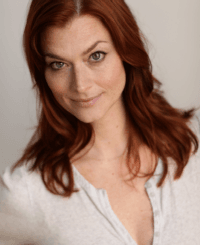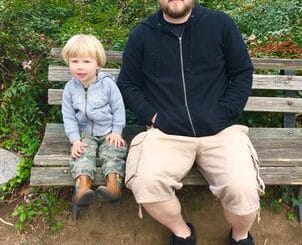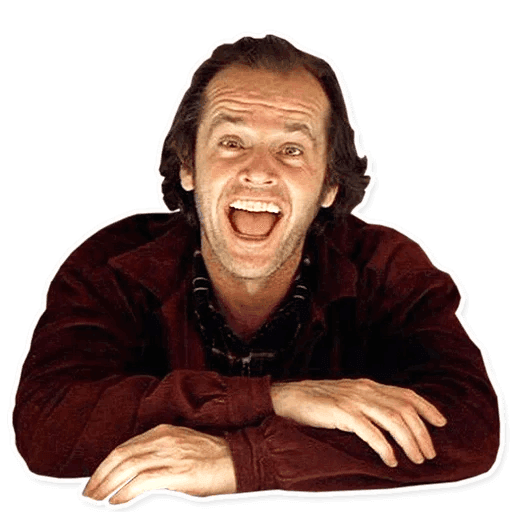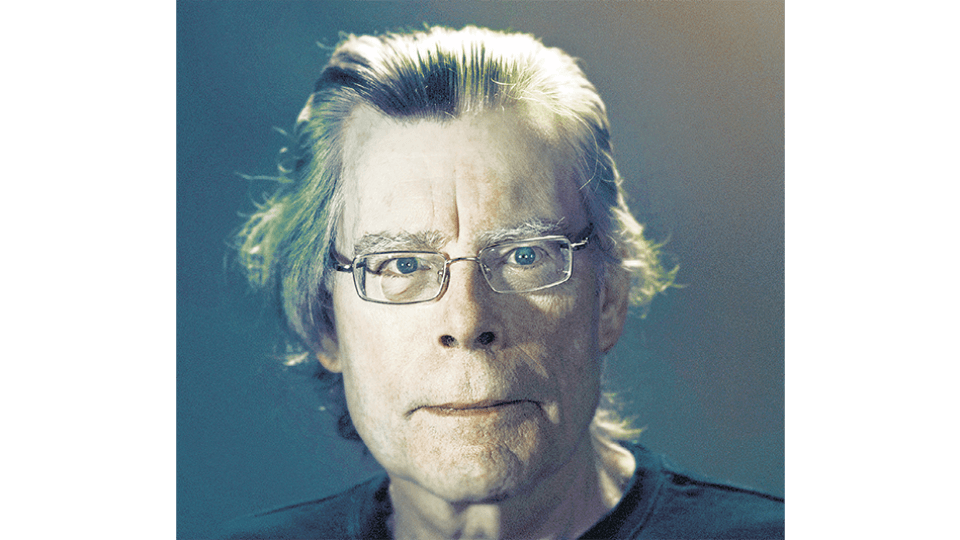Dana Moe
She is the filmmaker of Mute Dollar Baby film.
SKSM: Could you start with telling us a little bit about yourself? Who are you and what do you do?
Dana Moe: I am a career content writer/strategist and a lifetime film fanatic. I was a film studies major in college (U.C. Berkeley), but that education didn’t involve movie production. I learned screenwriting and production much later in life—and I’m still learning.
SKSM: When did you know you wanted to become a filmmaker?
Dana Moe: When I first watched The Oscars at the age of like, nine!
SKSM: When did you make Mute? Can you tell me a little about the production? How much did it cost? How long did it take to film it?
Dana Moe: I adapted the King screenplay for Mute in late 2022. We went into pre-production in March 2023 and shot the film in four days in April-May 2023. We spent about six months in post. Getting sound right in a moving car is tricky and we had to re-record the sound on a lot of those scenes.
SKSM: How come you picked Mute to develop into a movie?
Dana Moe: I loved the idea of exploring the human urge to share secrets. I’m not religious, but I’ve always been fascinated by the Catholic Church’s tradition of giving confession to cleanse the soul of misdoings.
SKSM: What do you think it is about the story that attracts people so much?
Dana Moe: Well, I guess I’m not the only one who finds confession intriguing! Inside and outside of the confessional booth, we all struggle with what to share with others—and what to keep to ourselves.
In MUTE, Roger is really struggling with the guilt of exposing the recent events in his life with the Hitchhiker, even though the guy claims to be hearing impaired. The question (as asked by the priest in the penultimate scene) is, did Roger really believe the Hitchhiker couldn’t hear?
SKSM: Can you tell us about your experience on this film? Was everything planned ahead or did some things change during filming?
Dana Moe: Most everything was planned ahead of time, but there were a couple of scenes where we went into our location “guerrilla” style (without permission) not knowing what shots we were going to get—and which we’d have to forego. For example, we went into the Broken Arrow Saloon, hoping to capture some line dancers. It was early in the evening and there wasn’t much going on— until a line dancer instructor came in.
We had everyone on the crew participate in the lesson so we could fill the room with dancers. We really lucked out there.
I can’t share the name of the other location as it could get us into trouble!
SKSM: You are both the director, scriptwriter and the executive producer, how did you experience that?
Dana Moe: It was a lot to take on but I had a producer (Tony Jonick) who was really hands on with the logistics. The hardest part for me as a director is making things work in post. They say you always make three films, the film you write, the film you shoot, and the film you edit. It’s so true.
SKSM: Were any movie fragments cut out that you now miss?
Dana Moe: There was another jokey interaction in the confessional booth revealing that the Priest knew a LOT about playing lotto and then having Roger blow up. I miss that piece of the scene.
SKSM: What has been the most difficult experience during filming?
Dana Moe: Filming on a car on a process trailer with our two actors, Roger and the Hitchhiker, in the front seat and me scrunched down in the backseat was pretty frightening for me, especially since we were going like 55 miles per hour on a freeway.
SKSM: Mute premiered at the Bay Area Indies Film Festival, on April 14 in San Francisco. What reception did it have?
Dana Moe: I’m happy to say that the film was received quite well! We had a lot of interesting questions during the Q&A and we received a lot of positive feedback afterwards.
SKSM: You had already filmed another Dollar Baby film based on a Stephen King story. In 2017 you filmed Rest Stop. Which of the two films have you felt most comfortable shooting (in a sense that everything went according to plan)?
Dana Moe: I loved the process of adapting Rest Stop into a screenplay. Stephen King’s story was great as literature of course, but the set-up needed more fleshing out to be cinematic. So I basically wrote a new act I with two characters that didn’t exist in Stephen King’s story.
Shooting Rest Stop was challenging in its own way, despite our meticulous planning. We shot at a freeway rest stop from like 9:00 pm to 2:00 am and we had to hire a security guard to keep our cast, crew and equipment safe. The real challenge for us was shooting the outdoor scenes at night. Lighting those scenes was quite difficult and we didn’t quite get the look we wanted.
With Mute, planning the previously mentioned car scenes were challenging as was getting the cast and crew to distant locations (Tracy, Livermore).
SKSM: All the work we do leaves a mark on us, some good and others not so much. What experience has Mute left on you?
Dana Moe: To never write another screenplay that involves moving cars—just kidding (I think). It made me realize that you don’t have to ever take no for an answer.
SKSM: How do you like to describe yourself as a director?
Dana Moe: All artists see things differently than other artists. I love and encourage collaboration and strive to be flexible, but sometimes I dig in my heels to get what I want.
SKSM: How did you find out that King sold the movie rights to some of his stories for just $1? Was it just a wild guess or did you know it before you sent him the check?
Dana Moe: I had seen the short film, Willa at Palm Springs ShortFest in 2016 and during the Q&A, the young German filmmaker talked about the dollar baby program. I had no idea that this program existed and instantly decided that my next film would be a SK dollar baby.
SKSM: Are you a Stephen King fan? If so, which are your favorite works and adaptations?
Dana Moe: I think The Shining is one of the best stories ever written and one of the best films ever made. Misery is also amazing.
SKSM: Did you have any personal contact with King during the making of the movie? Has he seen it (and if so, what did he think about it)?
Dana Moe: I haven’t had any contact, but I’d certainly welcome it!
SKSM: What are you working on nowadays?
Dana Moe: I’m directing another writer’s film, End Run, which deals with the right to die with dignity. I normally direct my own scripts so this is a little different. We’re in the middle of casting now and I’m really excited to go into production.
SKSM: What one thing people would be surprised to know about you?
Dana Moe: I love rock and roll and blasting my favorite band’s music from my car at an extremely high volume. Oh, and also, I’m obsessed with donkeys and dream of owning a donkey ranch.
SKSM: What is in the top 5 on your bucket list? (Everything is possible and nothing is too strange)
Dana Moe:
- To meet Stephen King.
- To shoot a film in the Turkish neighborhoods of Berlin, Germany. They’re incredibly scenic.
- Margaret Morehouse, who managed the Stephen King Dollar Baby program, recently retired, I’d love to step into that job.
- To work on a film with Paul Thomas Anderson.
- To have the aforementioned donkey ranch ownership.
SKSM: Thanks for taking the time to answer my questions. Is there anything you want to say to the fans that read this interview?
Dana Moe: Thank you!


















MUTE is a great film and one which is so relevant and tackles important questions in our lives. I was fortunate to see one of the first showings. I have seen Dana’s films before and they always make me ask myself some interesting questions and this one particularly has an unexpected twist. Congratulations on an excellent film and I hope it gets the attention it deserves.
Great interview, really captures the filmmaker and person that is the Dana I know. Can’t wait to see her next project, I’ve loved them all!
Really insightful interview! I’ve seen all of Dana’s films and am a huge fan. She has a unique way of developing characters and storylines so that when I watch her films, I am transported! Bravo, Dana!